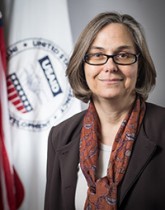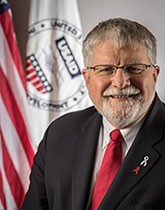- Who We Are
- Mission, Vision and Values
- Organization
- Leadership
- Office of the Administrator
- Bureaus
- Africa
- Asia
- Europe and Eurasia
- Latin America and the Caribbean
- Middle East
- Democracy, Conflict and Humanitarian Assistance
- Economic Growth, Education and Environment
- Food Security
- Global Health
- Legislative and Public Affairs
- Management
- Policy, Planning and Learning
- Foreign Assistance
- U.S. Global Development Lab
- Independent Offices
- Mission Directory
- Staff Directory
- Advisory Committee
- Board for International Food and Agricultural Development
- Mission Directors
- Coordinators
- Global Development Council
- USAID History
- Operational Policy (ADS)
- Transparency
- Resource Portal
The U.S. Agency for International Development’s (USAID’s) programs in global health represent the commitment and determination of the U.S. Government to prevent suffering, save lives, and create a brighter future for families and communities in low- and middle-income countries. With a commitment to improving global health, USAID confronts health challenges by raising the quality, availability, and use of essential health services. USAID's objective is to improve global health by focusing on three strategic priorities: 1) Preventing Child and Maternal Deaths; 2) Controlling the HIV/AIDS Epidemic; and 3) Combating Infectious Diseases. Achieving these priorities and continuing sustainable progress in global health requires investment in strengthening health systems and its core functions such as human resources, information, governance, finance, medical commodities and service delivery.
USAID's Bureau for Global Health supports health programs in partner countries, advances research and innovation in areas relevant to overall Agency health objectives, and transfers new technologies through its own programmatic work, coordination with other donors, and a portfolio of grants. Global health is a global good with consequences that not only affect the people of developing nations, but also directly affect the interests of American citizens.
In Washington, D.C., the Bureau for Global Health comprises nine offices that support the missions.
-
The Office of the Assistant Administrator provides oversight for all Global Health programs, support to the field, research, legislative relations, and external affairs. The Office also houses two new Centers. The Center of Excellence on Children in Adversity, which coordinates USAID efforts under the USG Action Plan on Children in Adversity. This Center will bring together USAID’s technical experts – at the Missions and in Washington – who are leading the response to the world’s most vulnerable children. As well as the Center for Accelerating Innovation and Impact, which is charged with accelerating the development, introduction, and scale up of priority global health interventions.
-
The Office of Country Support serves the Bureau for Global Health by ensuring strategic and broad spectrum technical assistance for USAID’s Population, Health/Nutrition (PHN) programs overseas. The Office provides assistance directly and manages country teams to support USAID PHN Mission Teams with field expertise from the Global Health Bureau, Regional Bureaus, and/or outside experts.
-
The Office of Health Systems works across the Agency’s entire portfolio of global health and is responsible for technical leadership and direction in health systems strengthening. The Office focuses on health policy; quality assurance; workforce policy; pharmaceutical management and standards; and information; monitoring, and evaluation.
-
The Office of HIV/AIDS is the focus of HIV/AIDS technical leadership for the Agency and has primary responsibility for leading the Agency’s efforts within the U.S. President’s Emergency Plan for AIDS Relief. This responsibility entails the following: ensuring the technical integrity of Agency and Mission strategies; providing global technical leadership on the full range of issues related to HIV/AIDS prevention, care, and treatment; managing numerous research and field support programs; and monitoring and reporting on the impact of the Agency’s HIV/AIDS program.
-
The Office of Infectious Disease is the Agency's lead for infectious disease programs and issues, and manages the Global Health Bureau's activities and engagement in infectious diseases, including tuberculosis (TB), neglected tropical diseases (NTD)s, malaria through the President's Malaria Initiative (PMI), and emerging threats/pandemic preparedness and response. GH/ID is responsible for technical direction and leadership and external engagement on infectious disease issues, including working with external partners, providing technical support to USAID's field missions and programs, and managing programs and centrally-managed infectious disease funding.
-
The Office of Maternal and Child Health and Nutrition serves as the Agency's technical and policy lead on maternal and child health and nutrition, and plays a leading role in the Agency goal of preventing child and maternal deaths. Cross-cutting activities managed by the Office in support of this goal address private sector partnerships, research, community health, and social and behavior change. The MCHN Office contributes to the achievement of the Agency's Feed the Future goals as well as those laid out in the Agency's Multi-sectoral Nutrition Strategy and Water and Development Strategy.
-
The Office of Policy, Programs, and Planning has primary responsibility for the Bureau for Global Health’s strategic planning, budgeting, programming, and procurement functions. The Office provides leadership, advice, and support for overall strategic direction, resource allocation, and procurement planning. It supports efforts to monitor and promote the effectiveness of programs and the achievement of the Bureau for Global Health objectives, and is integrally involved in performance monitoring and program evaluation.
-
The Office of Population and Reproductive Health provides strategic direction, technical leadership and support to field programs in population, voluntary family planning, and reproductive health. It manages programs that advance and apply state-of-the-art technologies, expand access to quality services, promote healthy behaviors, broaden contraceptive availability and choices, strengthen policies and systems to address family planning and reproductive health needs, and improve data collection and use.
-
The Office of Professional Development and Management Support is responsible for three functional areas in the Bureau for Global Health: Professional/Organizational Development, Personnel, and Administrative Support. The Professional Development Team develops and supports all professional development and training activities for the Bureau for Global Health and health sector field staff by providing resources, sharing knowledge, building capacity, and maximizing learning opportunities. The Personnel Team assists Bureau managers in developing workforce analyses and plans, processing recruitments and selections, and coordinating staff evaluations and awards. Finally, the Administrative Team provides all logistics and systems support to Bureau staff.









Comment
Make a general inquiry or suggest an improvement.